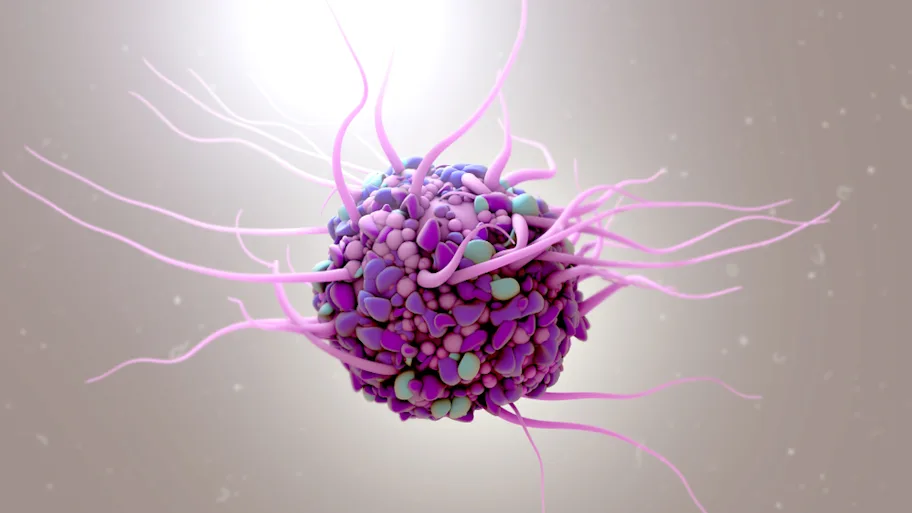
- Science News
- Health
- Smoking may cause inflammatory bowel disease
Smoking may cause inflammatory bowel disease

Inflammation in the lungs caused by cigarette smoke has a knock-on effect in the intestine. Image: Shutterstock.
Mice exposed to cigarette smoke suffer from a type of bowel inflammation resembling Crohn’s disease
— By Conn Hastings
Researchers in South Korea find that exposing mice to cigarette smoke results in colitis, an inflammation of the colon. The study, published in Frontiers in Immunology, identifies a specific white blood cell and an inflammatory protein that are responsible for the effect. These findings could help scientists to develop new treatments for inflammatory bowel diseases, and increase awareness among smokers of their risk for colitis.
While most people are aware of the various health risks associated with smoking, including respiratory and cardiovascular conditions, there are still more than 1 billion smokers worldwide. However, one area you might not associate with smoking is your colon.
Previous research has shown that smoking significantly increases the risk of Crohn’s disease, an inflammatory bowel disease. Inflammation in the colon, known as colitis, is a large component of Crohn’s disease, and its symptoms include abdominal pain, diarrhea and weight loss.
So, how does cigarette smoke affect the gastrointestinal system? While researchers are familiar with the link between smoking and colitis, they don’t yet understand it. One possibility is that inflammation in the lungs produced by smoking could have a knock-on effect in the intestine.
“The airways and the intestinal system have a lot in common,” says Hyunsu Bae, of Kyung Hee University in South Korea. “Interestingly, in Traditional Korean Medicine, a connection between the lung and the large intestine has long been emphasized. Crohn’s disease is more likely to occur in people with airway diseases, suggesting that inflammation in the lungs is linked with inflammation in the gut.”
Bae and his colleagues set out to investigate this phenomenon. They exposed mice to smoke from twenty cigarettes a day, six days a week, for a few weeks, using a machine to pump the smoke into their environment. The researchers then investigated the presence of inflammation in the mice’s lungs and colons.
Unsurprisingly, compared with mice exposed to clean air, mice that been exposed to the smoke showed significant inflammation in their lungs. Interestingly, however, they also suffered from a type of colitis resembling Crohn’s disease. The researchers found increased levels of mucus and inflammation in the colon, and blood in the feces of the smoke-exposed mice. They also found increased levels of a specific type of white blood cell, which was releasing a pro-inflammatory protein called interferon-γ.
The team set out to investigate if this white blood cell and inflammatory protein were responsible for the smoke-induced colitis. They repeated the experiment with mice that had very few of these specific cells and mice that couldn’t produce interferon-γ. In both cases, the mice did not develop colitis when exposed to cigarette smoke.
The team were now confident that this specific white blood cell was responsible for the cigarette smoke-induced colitis, but weren’t sure if it was possible for these cells to be activated by cigarette smoke in the lungs, and then travel to the colon to cause colitis.
To test this, the researchers exposed mice to cigarette smoke, and then isolated some of these specific white blood cells from tissue near their lungs. They then injected the cells into other mice, who had never been exposed to smoke. Strikingly, the injected cells migrated to the colon, and the non-smoking mice developed colitis shortly after.
“Our results suggest that cigarette smoking activates specific white blood cells in the lung, which might later move to the colon, triggering bowel inflammation,” explains Jinju Kim, another researcher involved in the study. “Smokers, especially those who also have bowel disease, should reduce their smoking.” The findings could also help scientists to develop new treatments for Crohn’s disease.
Original research article: Cigarette Smoking Triggers Colitis by IFN-γ+ CD4+ T Cells
Corresponding author: Hyunsu Bae
REPUBLISHING GUIDELINES: Open access and sharing research is part of Frontier’s mission. Unless otherwise noted, you can republish articles posted in the Frontiers news blog — as long as you credit us with a link back to the original research. Selling the articles is not allowed.






